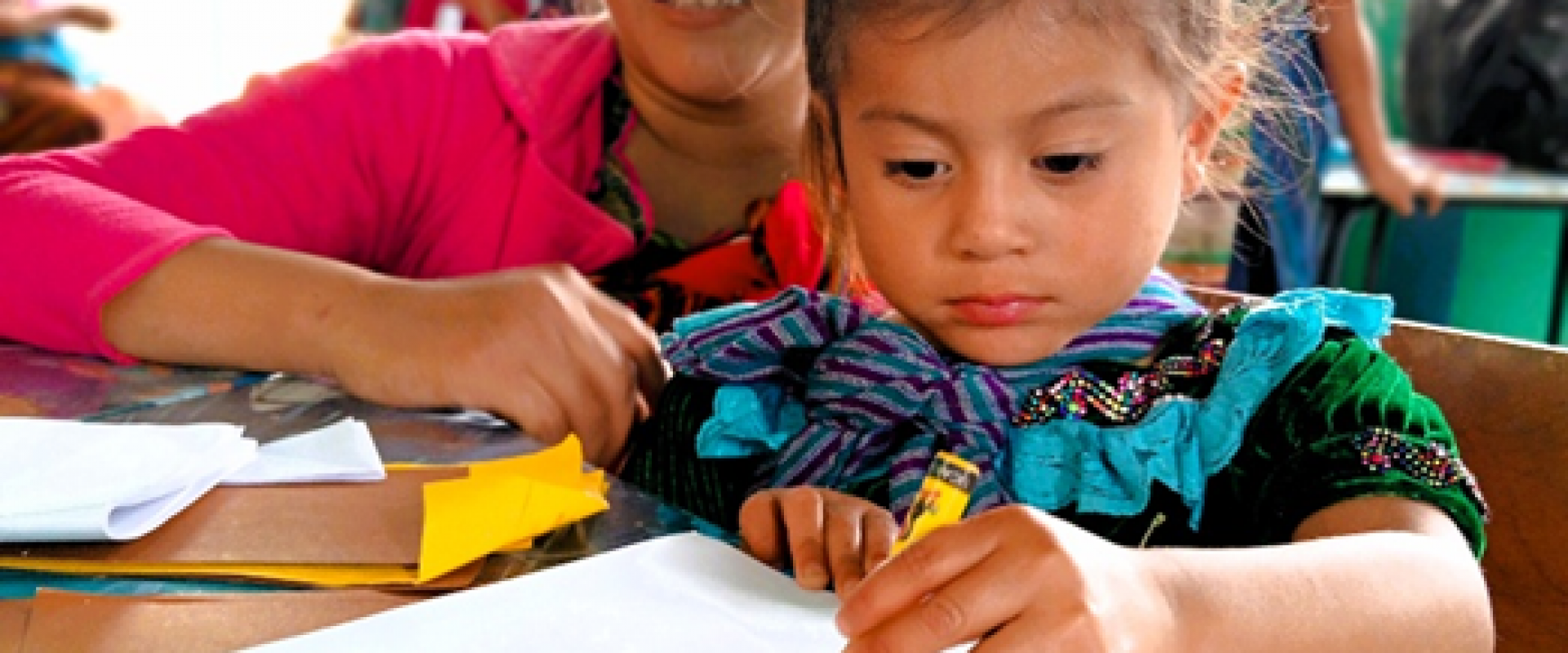
Across Central America, millions of children face long odds before they even step foot in a classroom. In rural and indigenous communities, access to early childhood education (ECE) is not just limited—it’s often nonexistent. (Humanium) (UNICEF) And yet, those early years are critical. They shape a child’s ability to learn, thrive, and break the cycle of poverty.
At School the World, we believe every child deserves the opportunity to start school ready to learn. And we know that solutions must start with the families and communities themselves.
Global research is clear: the first years of life are the most important for brain development. When children are denied early learning, they often start school already behind—and rarely catch up.
According to UNICEF, missing out on early education significantly increases the risk of poor literacy, grade repetition, and dropping out altogether. In Latin America, children in rural and indigenous communities are especially vulnerable: in Guatemala, only about half of children aged 24 to 59 months are developmentally on track, and in Honduras, fewer than 3% of children under age 3 are enrolled in early learning programs.
This isn’t just an education gap—it’s a root cause of generational poverty.
In Panama, Guatemala, and Honduras, early education remains deeply unequal:
Guatemala: Of the 2.3 million children under age 6, nearly 800,000 live in extreme poverty. For children under age 3, early learning opportunities are virtually nonexistent.
Honduras: Early childhood enrollment is among the lowest in the region, and the pandemic exacerbated already limited access and educator shortages.
School the World partners with communities to ensure children aren’t left behind before they even begin. Our Early Childhood Program:
Trains local volunteers (Tijonel) —often mothers themselves—to become early childhood facilitators.
Engages parents in monthly learning sessions, reinforcing their role as their child’s first educator.
Advocates for and builds pre-primary classrooms in underserved communities.
Equips pre-primary teachers with tools and training grounded in how young children learn best.
This approach is already showing results: 94% of School the World partner communities now have access to a pre-primary school—compared to just 64% nationally across our program countries.
We don’t believe in temporary fixes. We believe in tackling root causes and building systems from the ground up. Parents lead the way. Local governments share in the cost. And teachers receive ongoing support to help every child thrive.
Together, we’re laying the groundwork not just for school success, but for generational change.
Expanding access to early childhood education isn’t just an urgent need—it’s an incredible opportunity. With the right support, children in rural Central America can start school with confidence, curiosity, and the skills they need to succeed.
We’re committed to walking alongside these communities every step of the way. To learn more about one Tijonels’s experience, please read Marta Isabel’s story. To support our efforts, please consider making a donation today.